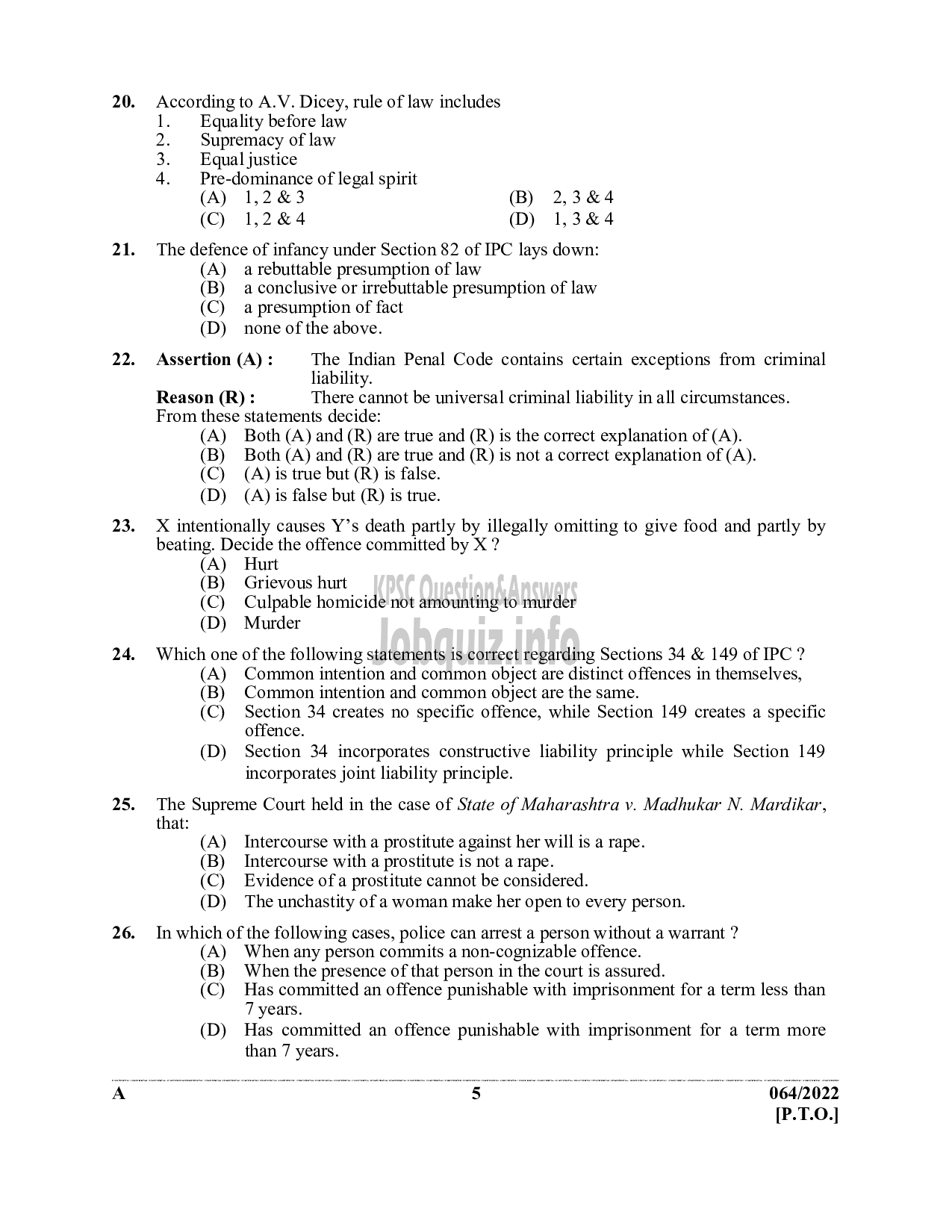Kerala PSC Previous Years Question Paper & Answer
Page:5
Below are the scanned copy of Kerala Public Service Commission (KPSC) Question Paper with answer keys of Exam Name ' Legal Assistant/ Legal Assistant Grade II Department: KSIDC Ltd/ Law Department (Govt. Secretariat) ' And exam conducted in the year 2022. And Question paper code was '064/2022'. Medium of question paper was in Malayalam or English . Booklet Alphacode was 'A'. Answer keys are given at the bottom, but we suggest you to try answering the questions yourself and compare the key along wih to check your performance. Because we would like you to do and practice by yourself.
20.
21.
22.
23.
24.
25.
26.
According to A.V. Dicey, rule of law includes
1. Equality before law
2. Supremacy of law
3. Equal justice
4. — Pre-dominance of legal spirit
(A) 3 (B) 4
(൭ ۹4 (D) 1,3&4
The defence of infancy under Section 82 of IPC lays down:
(A) 2 rebuttable presumption of law
(B) a conclusive or irrebuttable presumption of law
(C) a presumption of fact
(D) none of the above.
Assertion (A) : The Indian Penal Code contains certain exceptions from criminal
liability.
Reason (R): There cannot be universal criminal liability in all circumstances.
From these statements decide:
(^) Both (A) and (R) are true and (R) is the correct explanation of (A).
(B) Both (A) and (R) are true and (R) is not a correct explanation of (A).
(C) (A) is true but (२) is false.
(D) (A) is false but (R) is true.
X intentionally causes Y’s death partly by illegally omitting to give food and partly by
beating. Decide the offence committed by X ?
(A) Hurt
(B) Grievous hurt
(6) Culpable homicide not amounting to murder
(D) Murder
Which one of the following statements is correct regarding Sections 34 & 149 of IPC ?
(A) Common intention and common object are distinct offences in themselves,
(B) Common intention and common object are the same.
(C) Section 34 creates no specific offence, while Section 149 creates a specific
offence.
(D) Section 34 incorporates constructive liability principle while Section 149
incorporates joint liability principle.
The Supreme Court held in the case of State of Maharashtra v. Madhukar N. Mardikar,
that:
(A) Intercourse with a prostitute against her will is a rape.
(B) Intercourse with a prostitute is not a rape.
(C) Evidence of a prostitute cannot be considered.
(D) The unchastity of a woman make her open to every person.
In which of the following cases, police can arrest a person without a warrant ?
(A) When any person commits a non-cognizable offence.
(B) When the presence of that person in the court is assured.
(C) Has committed an offence punishable with imprisonment for a term less than
7 years.
(D) Has committed an offence punishable with imprisonment for a term more
than 7 years.
سرت 5
).2.70
